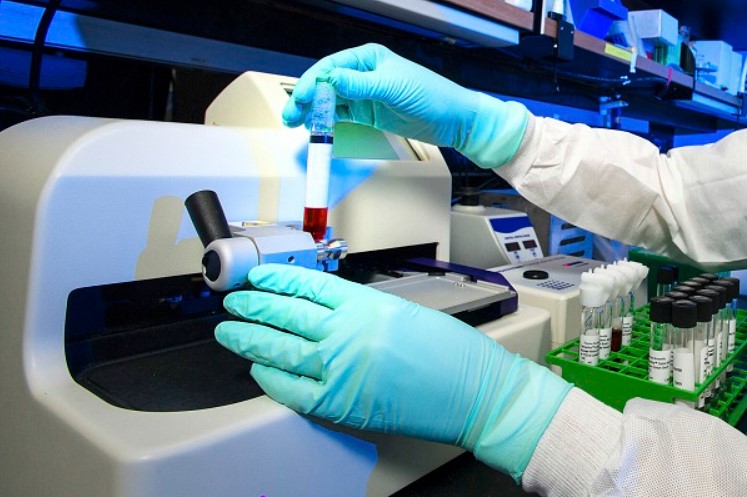Cancer is an uncontrolled proliferation of bodily cells, and everyone is born with the possibility of developing cancer. It cannot be “caught” in the same way that a cold or an infection is. When a group of cells’ programming is disrupted, proliferation can become uncontrolled.
Chronic irritation, cigarettes, smoke, radioactive substances, dust, sex, age, race, and inheritance are all factors that can modify the code. While many of these elements are beyond one’s control, individuals should be aware of them.
Cancer prevention is unquestionably preferable to cancer treatment. Before visiting a cancer treatment hospital in Chennai, you should be aware of some symptoms.

Contents
Symptoms and Signs
- A sore persists, particularly if it’s on the lip, mouth, or tongue. If left untreated, long-standing sores caused by smoking, a sharp tooth edge, or dental plates that don’t fit properly can develop into cancer. While a common ‘Cold Sore’ resolves within a few days, cancer does not. Consult your doctor if any sores linger for longer than a few days.
- Lumps that appear in areas where none previously existed should raise suspicion of malignancy. This is true for women and is the easiest to treat if caught early.
- While persistent indigestion or changes in bowel habits are normally the results of other factors, they are frequently the result of damage to the digestive tract and must be reported.
- Any unusual or unexplained bleeding from any orifice should be checked promptly by a physician. Cancer signs include coughing up blood, passing blood in your urine, and rectal bleeding. The first sign of uterine cancer in women is frequently a bloody discharge between monthly bleeding or following menopause.
- Persistent hoarseness or an abnormally prolonged cough warrants a thorough check by your doctor. The cause could be cancer of the larynx, respiratory passageways, or lungs.
- Various factors can cause unexplained weight loss, but they can also be caused by hidden cancer.
Diagnostic Examinations
There are numerous methods for diagnosing cancer. New diagnostic equipment and methodologies are developed and refined as researchers better understand cancer. If your doctor suspects cancer, they will prescribe diagnostic tests. Your physician or oncologists can perform these tests at a cancer treatment hospital in Chennai.
Regardless of who makes the prognosis, obtaining a second opinion from a cancer specialist is strongly advised. Certain kinds of cancer are notoriously difficult to categorize, even for experts. Oncologists can choose the most efficient treatment for a patient when they know the particular form of cancer. The most often used diagnostic techniques are as follows:
Biopsy
A tissue sample is removed surgically and checked for cancer cells under a microscope. Depending on the tumor’s location, certain biopsies can be performed as an outpatient procedure using only a local anesthetic. If the tumor contains fluid, fine needle aspiration is utilized. A long, thin needle is placed straight into the suspected location to obtain fluid samples for evaluation.
Endoscopy
A flexible plastic tube fitted with a little camera is placed into organs and body cavities to allow the physician to observe the problematic location. There are numerous scope types, each designed for viewing specific parts of the body. A colonoscope, for example, is used to inspect the colon, while a laparoscope is often used to check the abdominal cavity.
Imaging Diagnostics
A reputable cancer treatment center in Chennai will employ a variety of diagnostic imaging procedures to create internal images of the human body and its parts. Typically, these images are captured by a qualified technician and reviewed by a radiologist, a specialist who specializes in reading diagnostic images. The photos and results of the radiologist are then transferred to the patient’s primary care center, where specialists use the data to build a care plan.
Blood Examinations
Certain cancers produce compounds known as tumor markers that can be recognized in the blood. For example, a blood test for prostate cancer quantifies the level of prostate-specific antigen (PSA). PSA levels that are elevated may be indicative of malignancy. However, blood tests alone may be inconclusive, and additional diagnostic procedures should be required to establish the diagnosis.
If the sample and other testing reveal that you have a type of cancer, your doctor may order additional tests to aid in treatment planning. For example, your physician will need to ascertain the severity of your malignancy.
Determining the grade of the tumor or the risk group into which you fit is critical when figuring out the best treatment for certain cancers. Consult your physician if you suspect you may have cancer.
Leave a Reply
You must be logged in to post a comment.